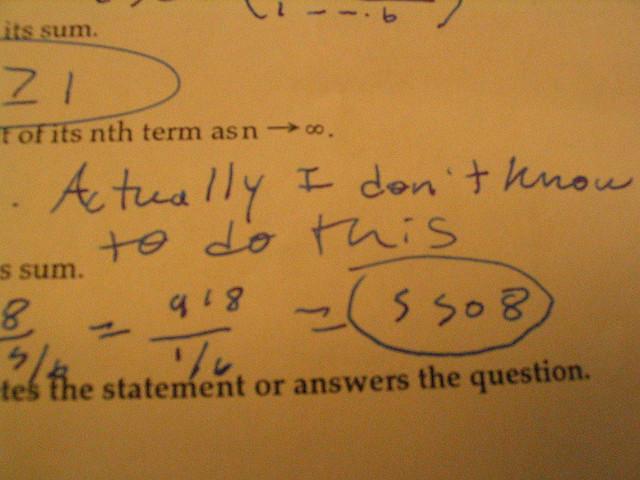Math is one of those subjects that most high schoolers groan about when it’s spoken of. We sit in class, trying to absorb as many of the formulas and concepts that you can, and try to at least pass that looming math test so we can move on with our lives. Especially at Horizon Honors, where we take pride in our creativity and originality, this isn’t much of a surprise. Being naturally good at math takes an analytic mindset, and exceptionally creative people generally aren’t fond of thinking this way. Recently, due to the Common Core standards being implemented on us by the great state of Arizona, the whole system of math has changed. While some think it’s a good change, others are frustrated that things couldn’t just stay the same. In order to form a proper opinion, one needs to understand the different parts of the change, as well as understand what it takes to truly get math. You may be surprised; it’s not all about memorizing formulas.
One of the first changes that was spoken of was homework no longer being worth a grade. On one hand, you no longer need to do hours of math problems just to have the teacher look at it for two seconds and mark it off; on the other hand, you no longer get 15 free A’s every quarter. What this really means is that you have the privilege of making a decision for yourself: do I need more practice with this concept? At the beginning of every year, and at the beginning of most chapters, there’s that one section that feels like it’s insulting your intelligence with how easy it is. Is doing the homework for subjects like this really necessary? I know it has always felt like a waste of time to me. Then, there are those sections that don’t seem to make any sense at all, and that require repeated practice to see patterns and understand the concepts behind them. These are the sections where the true decision needs to be made as to whether you need the extra practice. Choose wisely, because when the next quiz comes along, you may regret not spending half an hour to brush up your skills.
This brings me to the second big change to the system. Due to homework not being worth any points, there are only two things that are: quizzes and tests. There are two changes to both of these. First of all, quizzes are worth 30% of your grade, while tests are worth the other 70%. These tests can take multiple 90-minute blocks for some students to complete, can be frightening. The second change is that these quizzes and tests are now timed. Instead of being able to think about that problem and ask the teacher for help multiple times, you have to manage the clock and try to get as much done as possible in the least amount of time. We also aren’t given the one note card anymore either, making the process even more difficult. Now that we don’t get the 15 free A’s to save our grade, we need to think more critically about how to do well on the things that matter, instead of saying we’re bound to fail. We are not bound to fail by anything but our own paradigm of ourselves. All it takes is looking at the subject in a different way in order to achieve what we want to achieve.
To most students, math is just memorizing a bunch of formulas, learning how to use a fancy calculator, and trying to make sense of a jumbled mess of numbers and letters. In truth, math is much more than that. I’ve thrown the word “concept” around a few times so far, and for a good reason: That’s what math is really about. Anyone can memorize the formulas to pass a test, but in order to truly be successful at math, you need to understand why the formulas exist, and how they are true. I’m not going to list any examples because I don’t want to be responsible for boring anyone to death, but the real point is that all the things you learn in math are true for a reason. No single person sat down and started writing random symbols, putting them together, and calling them formulas. It took thousands of years of thinking and analyzing to get the concepts that you are taught every other day. Once you understand the reasoning behind something, it takes no memorization to remember it. All it takes is a bit of logic and understanding.
Many people will question what this has to do with the changes in the math department. Personally, I think the changes are a long-term benefit for the math students here at Horizon, and changes will force students to actually understand math, instead of just knowing it. This may seem harsh, but the point of academics is not to take one test and forget it for the rest of your life; the point is to teach you the way things are, and the reason why they are that way. I can guarantee that students will learn more through this new system, and who knows? Math may even become not dreadful. After all, anything is possible.









tabby • Mar 2, 2013 at 10:57 am
yes, but it is a little irksome to have to write down every step to every example, especially on those sections that are so easy they insult your intelligence!